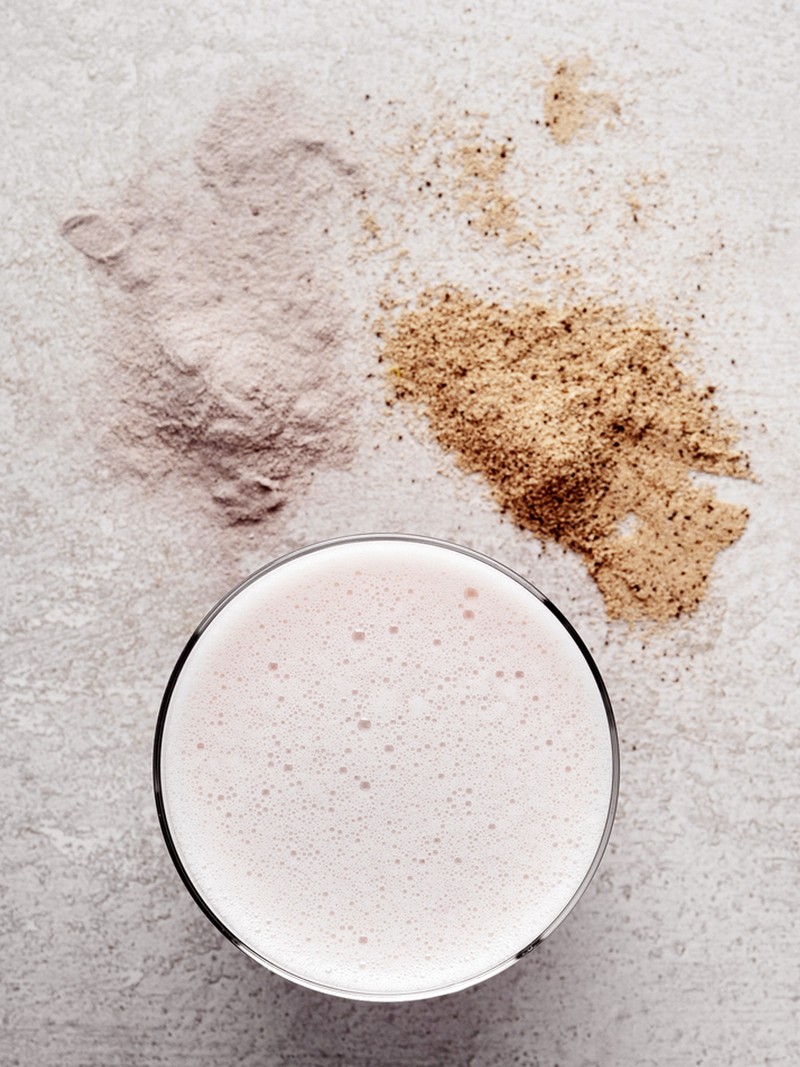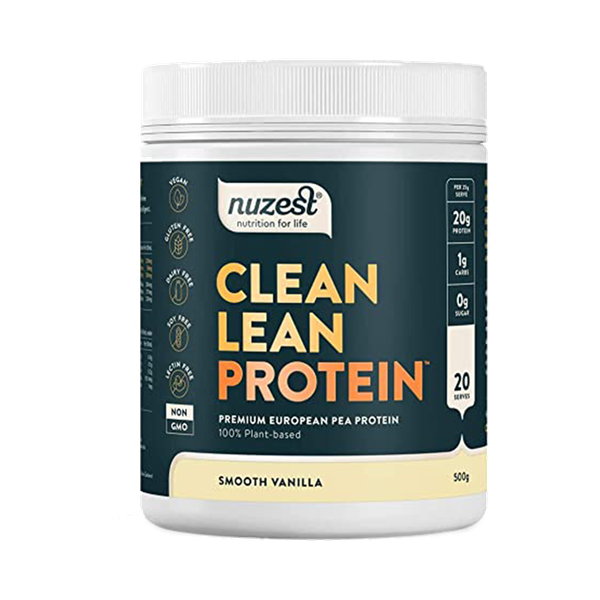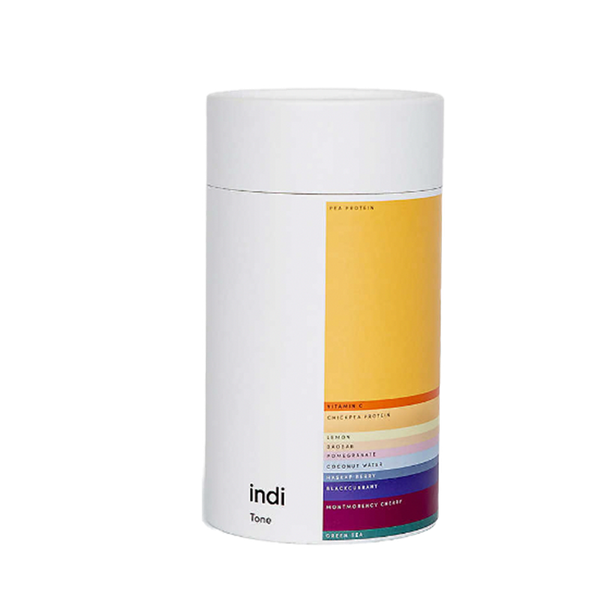Confused About Protein Powder? Here’s Where To Start
Why You Need Protein…
Despite its many health benefits, protein remains one of the most underrated and misunderstood nutrients in the average woman’s diet, says Catherine Sharman, functional nutritionist and owner of Après Food. “When we consume protein, our bodies break it down into amino acids, which are then used to build and repair muscle tissue, as well as other tissues such as skin, hair and nails. Protein is also important for maintaining a healthy immune system, is essential for the production of hormones, and can aid in weight management as it’s more satiating than carbohydrates and fat.”
So, why protein powder? The NHS recommends we consume 0.75g of protein per kilo of bodyweight per day, but recent studies suggest these guidelines are too low, especially if you are active. “Endurance athletes and those who regularly engage in strength training will need significantly more than this,” says Catherine. “Consuming 20-30g of protein at each meal, and including protein in a couple of snacks daily, is a good way to ensure adequate intake throughout the day – and a protein powder is a simple and convenient way to pack in the protein.”
Who Will Benefit…
You may associate protein shakes with heavy lifting, but even if strength training isn’t your thing, your muscles tear during exercise (including yoga and running), and require protein to repair and rebuild, says Nick Mitchell, CEO and founder of Ultimate Performance. “The vast majority of us drastically undereat protein, meaning pretty much everyone can benefit from consuming more,” he adds. And if you’re not overly active, a protein powder could still worth be using, says Catherine. “If you are vegan, vegetarian or lactose intolerant, you may struggle to hit your daily protein goals. Similarly, protein powder can be useful if you’re travelling and have limited food options, or if you have a small appetite. When you keep your protein levels topped up, you can expect a stronger, more resilient body.”
When To Take It…
There’s a misconception that protein eaten within an hour of exercise is better absorbed and will help you recover more efficiently. Catherine says new studies show a more balanced approach may be more beneficial. “Research suggests this ‘protein window’ is broader than previously thought and consuming protein within a few hours of exercise is still beneficial. It’s also important to note protein intake throughout the day is important for muscle growth and recovery, not just immediately after exercise. Instead of obsessing over post-workout protein, ensure you’re getting 20-30g of protein at each meal and snack spread throughout the day. This will ensure a steady supply of amino acids.”
The Different Types Of Protein Powder
Whey
For Quick Absorption
“Whey, derived from milk, is the gold standard of protein powder,” says Nick. “It is a complete protein, which means it contains all nine essential amino acids. Whey protein is also high in leucine, an amino acid that is particularly important for muscle growth and recovery. It’s also rapidly absorbed by the body, which makes it ideal for post-workout recovery.”
Soy
For A Plant-Based Option
Soy protein is one of the only plant-based forms of protein that contains all nine essential amino acids, making it a complete protein. “It’s also high in arginine, an amino acid that helps promote blood flow and improve exercise performance,” says Catherine. “Soy protein is a good option for vegetarians and vegans, as well as those who are lactose intolerant.”
Hemp
For A Dose Of Nutrients
“Hemp protein is a fantastic source of protein and is unique in that it contains omega-3 fatty acids, which can help to lower inflammation in the body,” says Catherine. “It’s also a great source of fibre, vitamins and minerals.”
Pea
For An Easily Digestible Protein
Pea protein is generally well tolerated and easy to digest compared to other protein sources like soy or whey. It’s also hypoallergenic, says Catherine, and doesn’t contain common allergens like gluten, dairy or soy, making it a good alternative for those with food intolerances or allergies. “It is rich in certain amino acids that are essential for tissue repair, muscle recovery, metabolism and energy production.”
Rice
For A Sensitive Stomach
Rice protein is a plant-based protein source derived from brown rice. While it may not be as well known as other protein options, it’s a good choice if you struggle with IBS or stomach issues, suggests Catherine. “Rice protein is easily digested and gentle on the stomach. Plus, studies show it contains adequate amounts of branched-chain amino acids (BCAAs) which play a crucial role in muscle protein synthesis.”
What To Look For…
With so many protein powders available, it can be overwhelming to know where to start. So, what should you be looking for?
“Don’t be lured by fancy packaging and marketing claims,” says Catherine. “Start by looking at the ingredient list and choose a product with minimal ingredients preferably from whole food sources. Avoid unnecessary additives, added sugars or artificial sweeteners. At the same time, look for a product that has a protein content of at least 20g per serving, including a good balance of amino acids, especially BCAAs, which are important for muscle growth and repair.”
If you can tolerate dairy, experts agree whey is a superior choice, but quality matters. “Look for a product that contains whey protein isolate – the purest form of whey,” says Nick. “Whey protein concentrate is a less pure form that’s best avoided.” If you’re looking for a plant-based option, a blended product that uses two or three forms of protein will offer a balanced protein source.
How To Use It…
Your daily dose of protein doesn’t have to come in smoothie form. “There are so many ways to get creative with protein powder,” Catherine tells us. “Try adding a scoop to your oats for a protein-packed breakfast, or mix with nut butter, oats and honey to make energy balls. You can even stir a tablespoon into plain yoghurt for a satisfying snack, or substitute a small amount of flour for protein powder when baking for a healthier twist on muffins, cookies or banana bread. Just remember that protein powder should never be a substitute for food or a meal replacement – it should be treated as a supplement to a healthy, balanced diet that includes a variety of protein sources.”
Here, six health pros share their go-to protein powder...
Jen Walpole
Nutritional Therapist
“Supernova’s Living Woman 01 protein powder contains some great ingredients to support female hormone balance, such as maca to support the adrenals, wild chaga for a hit of antioxidants and camu camu, which contains 60 times more vitamin C than an orange. It’s easy on the tummy, too, and the inclusion of psyllium husk works wonders for mobility and general gut health. The raw cacao gives it a lovely chocolate flavour, which makes it perfect to consume on its own with any milk, but it’s also equally good blended into a smoothie.”
Visit JenWalpole.com
Lucy Miller
Nutritional Therapist
“My go-to brand is Nuzest. I prefer plant-based protein, such as a clean pea protein, over whey protein as dairy-based powders can affect the skin and cause breakouts. Nuzest’s pea protein comes in a variety of natural flavours, such as vanilla, strawberry and coffee – simply add water and blend.”
Visit LucyMillerNutrition.com
Louisa Drake
PT
“When I'm on the go and pressed for time, protein powders can come in handy. As a rule, all post-workout fuel should be rich in good-quality carbohydrates to replenish muscle fuel stores, contain some lean protein to repair muscles, and include a source of fluid and electrolytes to rehydrate effectively. Enter Indi’s Tone Powder, which is made using chickpea and pea powder. It contains coconut water for hydration, green tea for fat-burning benefits and Montmorency cherries to aid muscle recovery. All the added extras I would need to include in a post-workout shake have been considered in this clever blend. It also tastes great, without any chalkiness.”
Visit LouisaDrake.com
Bryony Deery
Founder Of Pilates By Bryony
“I use Form Nutrition’s Performance Protein Powder two to three times a week to help with building lean muscle and to support muscle recovery. Not only does it taste delicious, it’s one of the cleanest protein powders out there – it’s vegan and contains no artificial colours or sweeteners, or added sugar. The days I don’t take Form, I use spirulina powder in my smoothies as it’s a natural source of protein and has anti-inflammatory benefits.”
Visit PilatesByBryony.com
Sophie Trotman
Nutritionist
“Purition’s protein powders are free from additives, artificial sweeteners and artificial flavourings – I alternate between the whey, hemp and pea protein varieties. I add a scoop to overnight oats and stir into yoghurt to boost the protein content. On the weekends, I add a scoop to my banana pancake mix, or have it simply in a post-gym smoothie.”
Phoebe Liebling
Nutritional Therapist
“For me, protein powder offers a convenient way to keep my protein intake optimal within a busy routine. My favourite brand is Motion Nutrition – its classic whey and peanut butter protein powders are both organic and contain no sugars or sweeteners. The peanut butter is particularly good as it contains four different sources of plant-based protein for a complete amino acid profile. Many products claim this, but don’t deliver. I also recommend The Organic Protein Company’s whey protein, which is free from sweeteners and any nasties.”
Visit NaturalNourishment.Me.
For more from the experts, visit ApresFood.com, UltimatePerformance.com, JenWalpole.com, LucyMillerNutrition.com, LouisaDrake.com, PilatesByBryony.com, SophieTrotmanNutrition.com & NaturalNourishment.Me.
SHOP SL'S TOP PICKS
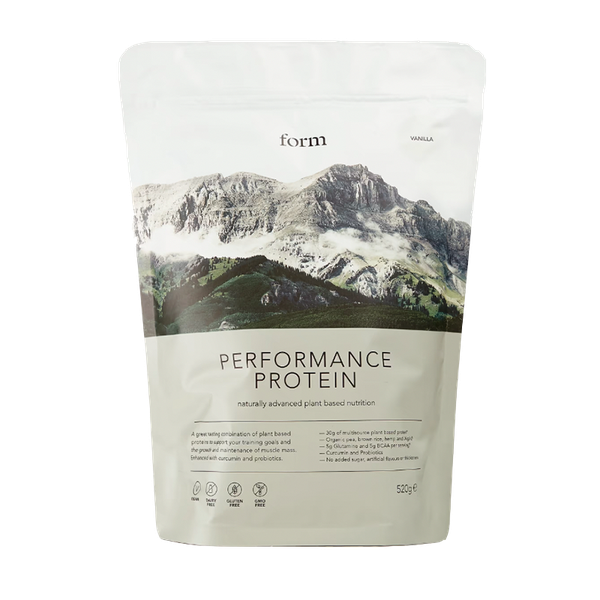
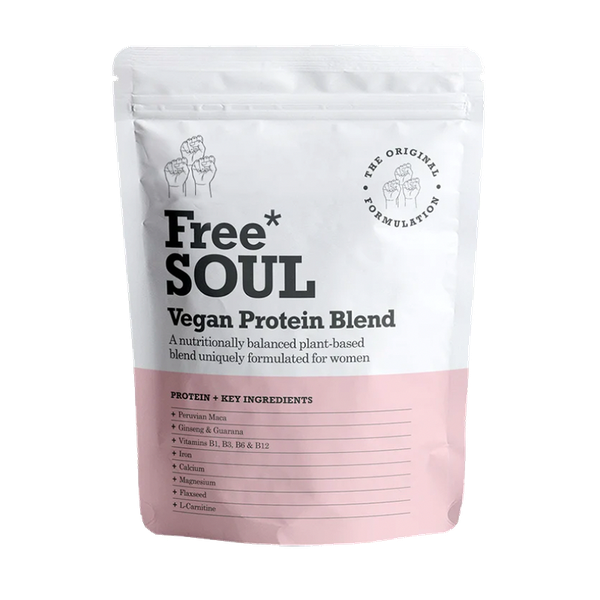
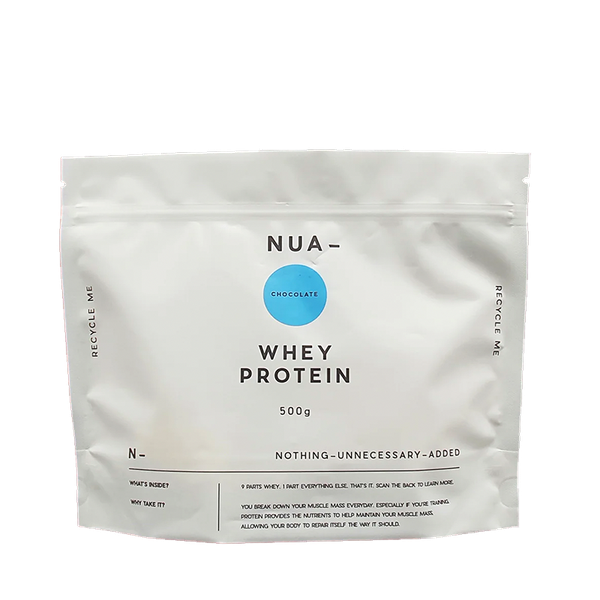
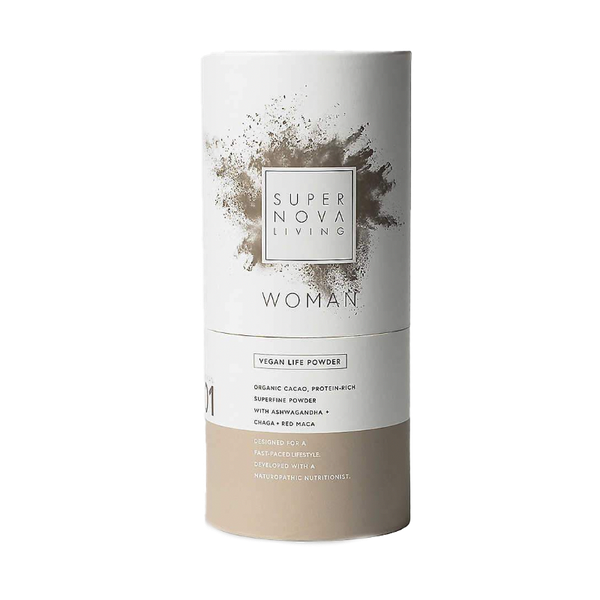
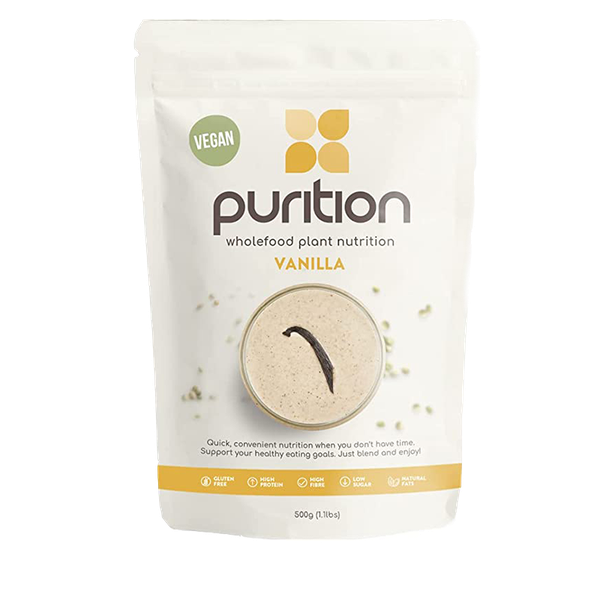
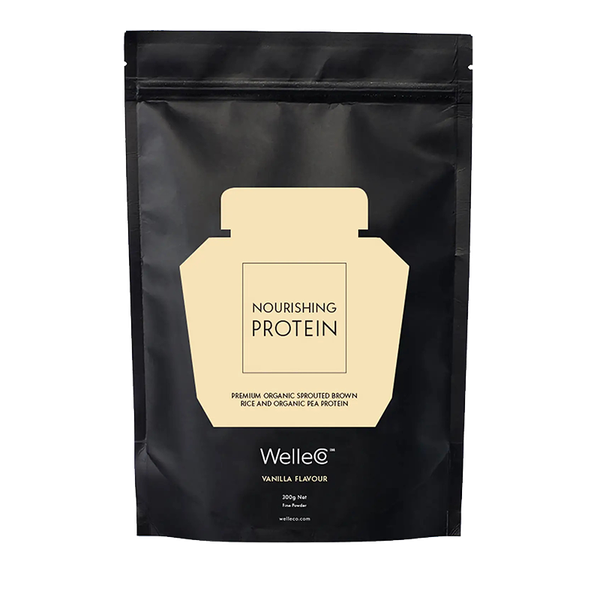
DISCLAIMER: Features published by SheerLuxe are not intended to treat, diagnose, cure or prevent any disease. Always seek the advice of your GP or another qualified healthcare provider for any questions you have regarding a medical condition, and before undertaking any diet, exercise or other health-related programme.
DISCLAIMER: We endeavour to always credit the correct original source of every image we use. If you think a credit may be incorrect, please contact us at info@sheerluxe.com.
